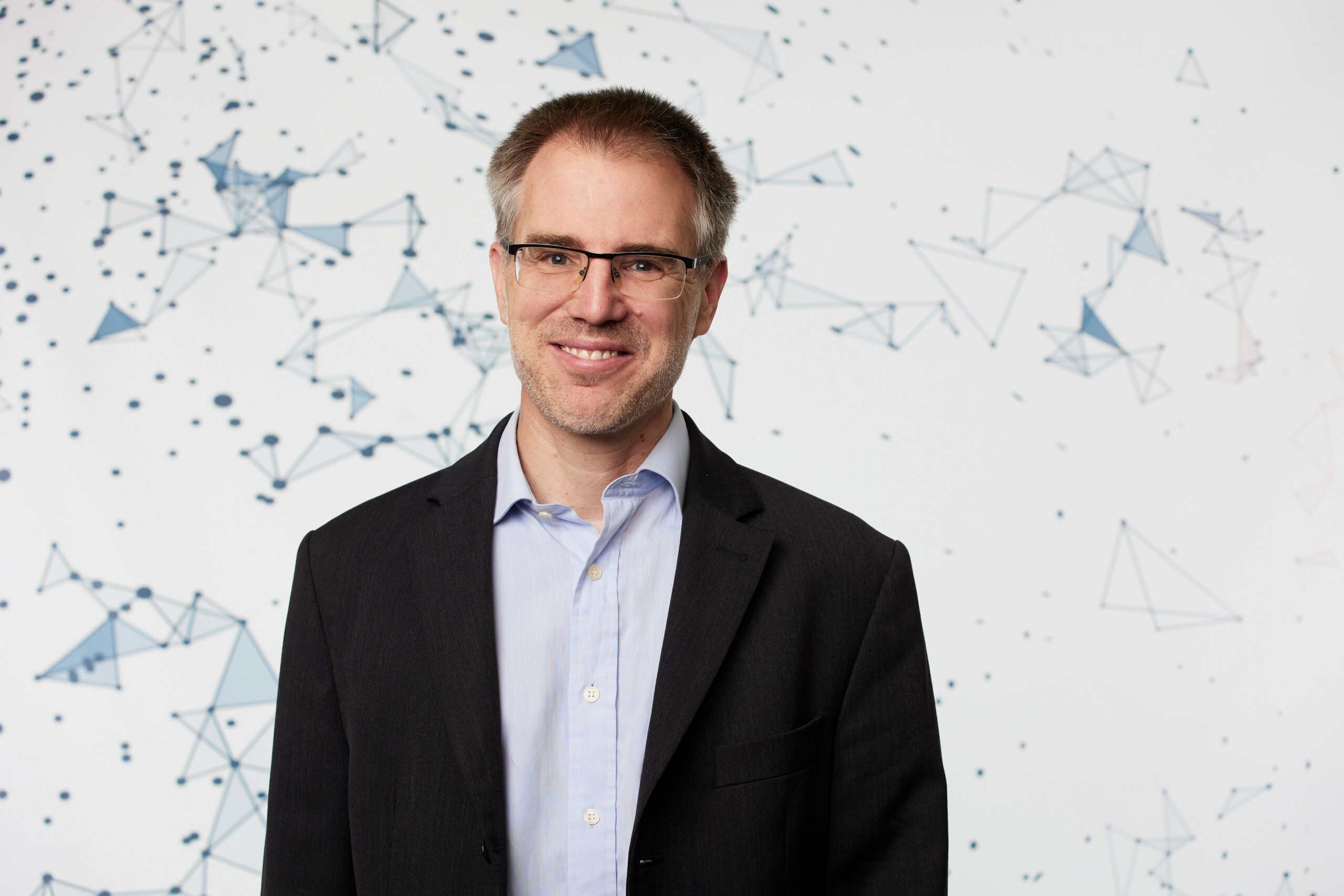IMDEA Networks

"Será importante que estemos atentos a los cambios en el panorama de la investigación en redes"
Nuestro Director de Investigación, Joerg Widmer, nos habla de las claves del presente y futuro de la institución
18 Mayo 2023

La iniciativa IMDEA nació hace 15 años… ¿Qué destacaría, a modo de resumen, de la contribución de IMDEA Networks en este sentido?
Es bastante sorprendente lo que la iniciativa IMDEA en general e IMDEA Networks en particular han conseguido en un periodo de tiempo relativamente corto. Sería difícil encontrar un instituto de investigación similar en Europa en términos de investigación de alta calidad, transferencia de tecnología e internacionalización. En mi opinión, este empeño ha sido un éxito rotundo para reforzar la excelencia científica en la región de Madrid.
En este contexto, los proyectos forman parte de la transferencia de tecnología… si tenemos en cuenta los actuales, ¿qué aportaciones destacan en este sentido?
Tenemos más de los que puedo enumerar aquí, pero me gustaría destacar dos ejemplos en los que participo personalmente, el H2020 ITN MINTS y el recientemente aprobado Horizon Europe ITN 6th-SENSE, que refuerzan nuestras áreas de redes de ondas milimétricas y sensado. Ambas son redes de formación doctoral que permiten contratar a excelentes estudiantes de doctorado que luego investigan y se forman junto con el resto de estudiantes de doctorado del proyecto, para proporcionar a futuros investigadores/as todas las habilidades necesarias para tener éxito en el mercado laboral y aportar conocimientos especializados muy necesarios en estas importantes áreas.
¿Qué caracteriza a IMDEA Networks teniendo en cuenta que estamos formados por un equipo internacional en ciencia de vanguardia?
Personalmente, me gusta que a pesar de la investigación altamente competitiva y la composición muy internacional del equipo de investigación en general, el ambiente es de trabajo conjunto y colaboración, más que de competencia dentro del instituto. Eso ayuda mucho a centrarse en la investigación sin distracciones y a beneficiarse al máximo de la experiencia y las sinergias con los y las colegas.
Alemán de nacimiento, usted está familiarizado con la investigación en el ámbito internacional. ¿Por qué y cómo se ha posicionado IMDEA Networks en uno de los principales centros de investigación en telecomunicaciones?
Las dos razones que primero me vienen a la mente son las condiciones relativamente atractivas y la libertad académica, junto con cuidadosas decisiones de contratación para centrarse en el mejor talento en lugar de en un crecimiento rápido. Creo que desde el principio fuimos capaces de reunir un equipo de investigación realmente excelente, que a lo largo de los años se ha reforzado cuidadosamente con otras incorporaciones destacadas. Construir un instituto sin el mejor talento es imposible.
¿Cuál es la importancia de la red de Alumni en una institución como IMDEA Networks?
En muchos institutos y universidades, incluida la nuestra, los antiguos alumnos y alumnas desempeña un papel crucial. En mi opinión, esto es algo que podríamos y deberíamos reforzar aún más para crear una conexión más fuerte con la red de Alumni que ahora ocupan puestos importantes en la industria y la academia, para promover el intercambio de conocimientos y la transferencia de tecnología, llevar a cabo investigaciones y proyectos conjuntos, y ayudar a nuestros estudiantes actuales a encontrar puestos igualmente prometedores tras su graduación.
Mirando, por ejemplo, a diez años vista, ¿qué se puede conseguir en términos de investigación en el centro?
Yo esperaría un crecimiento moderado del instituto, siempre con la directriz de que la calidad es mucho más importante que la cantidad. Y lo que es más importante, creo que el panorama de la investigación en redes está cambiando, con nuevas áreas de aplicación y tecnologías a punto de hacerse realidad, el uso generalizado del aprendizaje automático, etc. Será importante que estemos atentos a esos cambios y encontremos un buen equilibrio entre maximizar el impacto en nuestras áreas de investigación bien establecidas y adaptarnos con flexibilidad a esos cambios y modificar la dirección de nuestra investigación o abrir áreas completamente nuevas.
¿Y cuál es la importancia de eventos como el Consejo Científico o el Workshop Anual?
Tenemos un Consejo Científico realmente increíble. (Esta fue una de las muchas razones que me convencieron para unirme a IMDEA Networks). En particular, en los primeros años del instituto, el Consejo Científico desempeñó un papel decisivo a la hora de orientarnos sobre cómo dar forma al instituto, y ahora son extremadamente útiles para obtener información sobre nuestra investigación y sobre nuevas áreas de investigación prometedoras, entre otras cosas a través del taller anual. En este contexto, creo que nuestro primer retiro del profesorado en 2022 fue una oportunidad importante para dar un paso atrás en la investigación diaria y generar una tormenta de ideas entre el profesorado sobre la dirección del instituto y debatir nuevas áreas.


Comentarios recientes